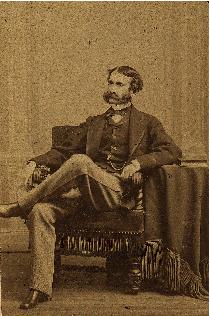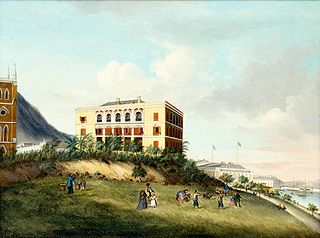Contents
- Introduction
- Preface
- Overview
- Relief Valve
- LECTURE 1: Why We Are In The Dark About Money
- LECTURE 2: The Con
- LECTURE 3: The Vatican-Central to the Origins of Money & Power
- LECTURE 4: London The Corporation Origins of Opium Drug Smuggling
-
LECTURE 5: U.S. Pirates, Boston Brahmins Opium Drug Smugglers
-
THE BOSTON BRAHMINS
- Clipper Ships
- The Boston Money Tree
- John Perkins Cushing
- Abiel Abbott Low
- William H. Russell and Samuel Russell
- The Combination Russell, Jardine, and Matheson
- Russell Sturgis
- Colonel Thomas Handasyd Perkins
- The Perkins Family
- Frances Perkins--The Only Good Brahmin
- American House of Russell and Co.
- Harvard Corporation
- Opium to Brahmins to Yale to CIA
- Forbes Family I
- Warren Delano
- Hope & Co. - Baring Brothers Bank
- John Jacob Astor
- Taft Family
- 1924 America's 1% Exposed
- Proof FDR Knew About his Grandfather's connection with Opium China Trade
- Forbes - John Kerry Family II
- George Bush Family Origins in Opium Drug Smuggling
- Black Market Bones
- Thuggee Barbara Bush Family
- Thuggee Bush Family and the CIA
- John Quincy Adams and the Chinese Opium Trade
- The Ammidons
- Augustine Heard
- Joseph Coolidge IV
- Lowell Family
- Pirates Profiteers Banksters Traders Transfers
- Pirates
- White Slavers, Cargo, Property, Auctions, Amazing Grace
- $ Colonial Labor: Indentured Servants
- England to Philadelphia Slave Trade and Opium
- Extract from Charter of Freedoms and Exemptions to Patroons 1629
- The Definitive Treaty of Peace
- Pennsylvania Charter of Privileges 28 October 1701
- Opium Trade -- American Drug Smuggling Pirates
- Opium In America
- 1% Power Elite Networks
- 1% Elite Networks Bush & The CIA
- BEFORE Skull & Bones
- SKULL AND BONES
- Caribbean Pirates in the American South
- Who Were the Tories
- The Golden Age of Imperialism Opium Act 1908
- Global Dominance Groups
- The New World Order
- Characteristics of Fascism
- War on drugs
- Lecture 5 Objectives and Discussion Questions
-
THE BOSTON BRAHMINS
- LECTURE 6: The Shady Origins Of The Federal Reserve
- LECTURE 7: How The Rich Protect Their Money
- LECTURE 8: How To Protect Your Money From The 1% Predators
- LECTURE 9: Final Thoughts

Augustine Heard & Co., which reigned among the largest American trading houses in China in the mid-nineteenth century. The company was active from 1840 to 1877 under the direction of Augustine Heard and his nephews John, Augustine II, Albert, and George Heard.
Europeans worked through centuries-old, joint stock trading enterprises such as the Dutch East India Company and the British East India Company. Americans, newly arrived in the China trade, operated as private traders or merchant syndicates that oversaw purchasing and shipping of goods from China to Western importers. “American merchants were bona fide free traders who were not restricted by a privileged incorporated monopoly,” historian Yen- p’ing Hao explains. “[They] were free to carry their cargoes wherever they pleased.” http://www.library.hbs.edu/hc/heard/
While the opium trade increased hostility between China and Great Britain and eventually plunged the two countries into war, Green returned to New York a wealthy and influential man, investing in the burgeoning railroad industry and devoting himself to community and civic interests. His great-great-grandfather was the Rev. Jonathan Dickinson, Princeton’s first president, and his great-grandfather was the Rev. Caleb Smith, a trustee and the University’s first tutor.

Residence of Augustine Heard and Company, Hong Kong, c. 1860. The building was later modified and is now known as the Former French Mission Building.
Augustine Heard and Company (Augustine Heard & Co.) was a major nineteenth-century American trading firm in China whose operations consisted in importing and exporting a large array of goods, including tea and opium.
The American firm Russell & Co., one of the most powerful illegal drug smuggling cartels in history, was established in Canton in 1824. In 1830 Augustine Heard became a partner in the firm, leaving his own indelible stamp on the American illegal drug smuggling legacy.
READ AUGUSTINE HEARD AND HIS FRIENDS
“Business is too important and interesting not to be chronicled somehow,” Albert Heard wrote.
He was referring to his family’s firm, Augustine Heard & Co., which reigned among the largest American trading houses in China in the mid-nineteenth century. The company was active from 1840 to 1877 under the direction of Augustine Heard and his nephews John, Augustine II, Albert, and George Heard. The family shared Albert’s sentiments, leaving behind an extensive chronicle of their experiences in China. In addition to a voluminous collection of extraordinarily descriptive letters and diaries, they took care to meticulously preserve the company’s documents and journals—from partnership agreements and export lists to custom regulations and ship designs. The Heard papers, one of the largest collections of business records relating to the nineteenth-century China trade, present a look into momentous events concerning Sino-Western relations as well as the day-to-day activities of American traders in the treaty ports. Within the 800 volumes, 272 boxes, and 103 cartons survive both the professional accounts and personal perspectives of the life and trajectory of a nineteenth—century firm—a firm that prospered at the height of the China trade and met its decline with the advent of new technologies and the emergence of the Chinese as mainstream players in international trade.
misplaced family pride in drug smuggling
Boston, Nov. 20, 1805. Mr. Augustine Heard,
Sir: Enclosed you have invoice and bill lading for ninety-five pecolls of pepper shipt on board the ship "Eliza," Capt. Charles Smith, bound for Leghorn and consigned to you, being on our joint account and risk. In case you go on to India in any Vessell, you will take my part of the proceeds of this pepper with you and invest the same for my account — should you return to this country direct, bring the proceeds in opium or some other valuable goods that you think may produce a profit. In case you go on to Calcutta in the "Hector" your privilege will be more than you will have funds to fill up with advantage. I authorize you to draw on me at 30 or 60 days sight for any sum not exceeding $5000, provided you can obtain Dollars at or under five per cent, advance.
Your friend and well-wisher, Eben Francis.The super-cargo was allowed a small commission on his sales and purchases, and had the privilege of a certain number of tons, which he might utilize with his own venture. The allusion to this privilege in the letter of instructions reveals the merchant's liberal dealing with his young friend.
HARVARD: BUILDING A FAMILY BUSINESS
When the proposition was first made of my going to China with Uncle Augustine I jumped at it. I knew it involved a question of years, but there was a romantic side to it which appealed to my imagination. I thought, too, that under his protection I had a much greater chance of success than at home. — John Heard reflecting on his first trip to China in 1841, from his diary, 1891